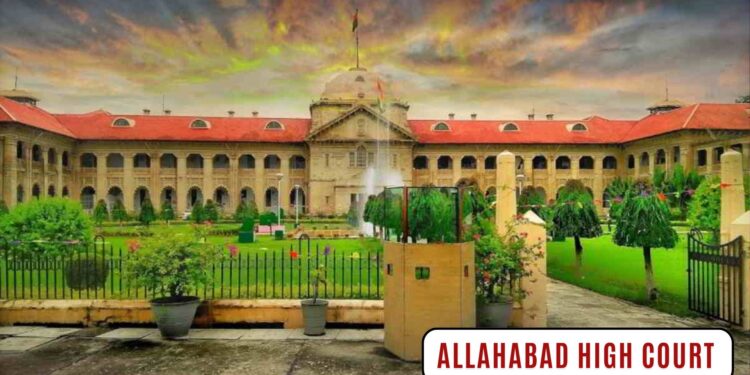The Allahabad High Court’s recent ruling sheds light on serious concerns about the criminal justice system’s handling of wrongful convictions and the impact on those unjustly prosecuted. Emphasizing the urgent need for legislative reforms, the Court called for the establishment of a statutory framework to compensate individuals wrongfully charged and convicted, observing that trial judges sometimes convict innocent persons to avoid scrutiny from higher courts or to protect their career interests.
This observation came in the case *Upendra @ Balweer v. State of Uttar Pradesh*, where Justices Siddharth and Syed Qamar Hasan Rizvi acquitted a man who had been accused in 2009 of murdering his wife. Despite his innocence, the man endured 13 years in jail before being granted bail. The Court pointed to the lack of adequate proof against him, including unsubstantiated allegations of dowry demands and cruelty. Yet, he was ultimately convicted under murder charges without a fair opportunity to defend himself on the added charge.
The Court highlighted the Government’s inaction in implementing the recommendations of the 277th Law Commission Report, which advocated for a law to address wrongful prosecutions, including setting up special courts dedicated to such cases. The judges pointed out that trial courts, fearing reproach from higher courts, often convict individuals in high-profile or heinous cases, even when the evidence favours acquittal. This practice, the Court noted, undermines the fundamental rights enshrined in Articles 14 and 21 of the Indian Constitution, which safeguard equality and personal liberty.
In its October 25 judgment, the Court voiced disappointment over the absence of remedial mechanisms within the recently enacted *Bhartiya Nagrik Suraksha Sanhita, 2023*, which, the judges observed, fails to provide safeguards aligned with constitutional protections for wrongfully accused individuals.
The Court expressed particular concern for the social reintegration challenges faced by acquitted individuals, who often face alienation from society and family despite being cleared of charges. This societal stigma, compounded by years of lost livelihood and personal hardship, leaves them in a vulnerable state. The Court, therefore, urged the State to introduce financial compensation to provide some relief to those wrongfully prosecuted, suggesting that such a measure would reduce their dependence on family members and offer a semblance of solace after enduring unwarranted punishment.
The case’s specifics reveal troubling procedural flaws: the accused, initially charged with dowry-related offences, was later convicted of murder without sufficient evidence, primarily due to the discovery of a fetus in the deceased’s womb. The High Court criticized the trial court for not allowing the accused an opportunity to defend himself against the altered murder charge, underscoring the importance of fair trial principles and the accused’s right to mount an adequate defence when charges are modified during proceedings.
The Court ultimately acquitted the appellant, expressing frustration over its inability to provide compensation due to the lack of an established legal framework for such cases. It remarked that while certain isolated cases have seen compensation awarded through writ jurisdiction under public law, the absence of a standardized approach has hindered the development of a comprehensive compensation regime.
In representing the parties, Advocate Amar Singh Kashyap appeared for the appellant, and Additional Government Advocate Manju Thakur represented the State of Uttar Pradesh. This ruling underscores a growing call within India’s judiciary for structural reforms aimed at protecting the rights of those wrongfully prosecuted, highlighting the need for laws that not only address such miscarriages of justice but also ensure just compensation and reintegration support.

















